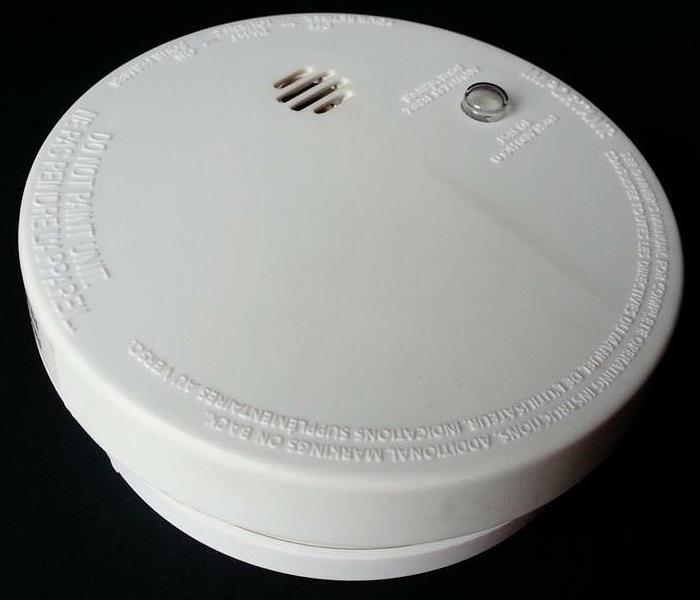Is Your Smoke Detector Working?
2/25/2021 (Permalink)
Are your smoke detectors working correctly? In many homes and businesses the answer is no. Often the problem is that they are perceived as a hassle and there are too many false alarms. The information below will help you troubleshoot your system because the simple fact is that smoke detectors save lives and prevent property damage.
All too often the answer for property owners is to disable the system to avoid the nuisance alarms. The batteries are removed, the system is disabled, or the devices are removed entirely. This is usually undetected, especially in private homes where fire officials do not perform regular inspections and have limited enforcement powers.
There are 3 basic types of systems but the tips below are largely the same for each. Single station units are the ones you buy at the hardware store and screw to the ceiling.
Hardwired/interconnected may look the same but they activate as a group ensuring that all areas of the home get the message. These first 2 types only notify the occupants. Monitored systems may be wired or wireless but they notify the fire department when activated.
The smoke detectors themselves are typically one of 2 types: Ionization or photoelectric. Ionization units use a small amount of radioactive material that detects invisible particles created by the fire using electrical currents. They are more expense so most people have photoelectric units. Photoelectric units use a beam of light which is deflected by smoke particles to activate.
The main problem is that other “stuff” can enter the chamber, block the light, and set off an alarm. This includes dust and bugs. The most common unwanted cause of activation is a contractor sanding near the unit. This is easily identifiable but a little spider passing through often makes the owner think the device malfunctioned.
To prevent issues follow these tips:
- Cover the detector when working nearby, especially sanding
- Put a monitored alarm system on test if you are doing something that may activate the system
- Change your batteries each time you change the clocks
- Use a vacuum to clean the unit periodically
- Units have a manufacture date on the back of them and they expire after 7-10 years depending on the brand. Replace them when needed.
Whatever you do, don’t disable these important systems. The fire department would much rather respond and find a minor issue than fight a significant fire because your system was disabled. Your local fire department is most likely offering a complementary home safety survey which can answer any questions you have along with other helpful advice.





 24/7 Emergency Service
24/7 Emergency Service
